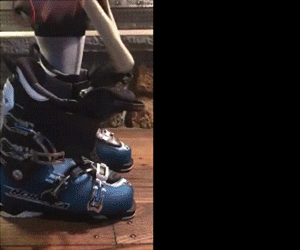CSIA has 4 levels. Level 1 is 3+ days. There is an online portion. This has totally changed from when I took it, and it involves a lot more teaching kids. Level 2 is done in 2 parts and is assessed, no exam. Then the fun begins. Level 3 requires 3 days of training and then a 2 day module that is students choice. Exams consists of teaching and skiing. Teaching at that level is either bumps or dynamic parallel. In the past to take the 3 exams, you also needed coaching 1. They have dropped that requirement TG! Level 3 is where the examiners really weed out the want-a-bees. It's hard, its tough and you gotta know your stuff. Last set of exams at Tremblant last spring, saw only 2 or 3 out of 12 get it.
If you pass CSIA 4 you're a GOD!
Also in Canada a certified ski instructor is covered by insurance that CSIA gets. The clubs, hills and resorts have a basic policy, but it usually doesn't cover the instructors. So you need to be certified to teach. If you are not, then you're working with a certified instructor and considered an aide. I think this is where the PSIA and CSIA differ. Every instructor also has to do a recall every 3 years. That way you are kept up to date with new teaching methods.
Certification is the same in all regions. In fact my boot fitter was sent out west to do a level 2 course as they couldn't find enough course conductors to do them.
Besides ski instructor there is freestyle, adaptive (CADS), race coach, snowboard, snowboard race and nordic. There is usually some requirement for a level 1 or 2 to take those certifications.
If you pass CSIA 4 you're a GOD!
Also in Canada a certified ski instructor is covered by insurance that CSIA gets. The clubs, hills and resorts have a basic policy, but it usually doesn't cover the instructors. So you need to be certified to teach. If you are not, then you're working with a certified instructor and considered an aide. I think this is where the PSIA and CSIA differ. Every instructor also has to do a recall every 3 years. That way you are kept up to date with new teaching methods.
Certification is the same in all regions. In fact my boot fitter was sent out west to do a level 2 course as they couldn't find enough course conductors to do them.
Besides ski instructor there is freestyle, adaptive (CADS), race coach, snowboard, snowboard race and nordic. There is usually some requirement for a level 1 or 2 to take those certifications.




